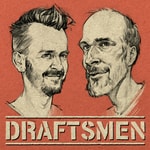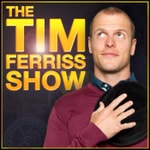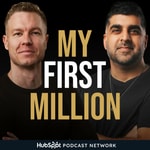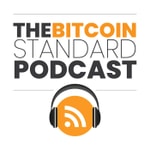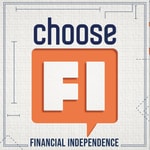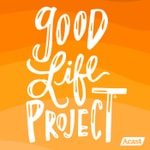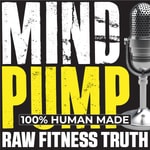Voices in the Dark – Details, episodes & analysis
Podcast details
Technical and general information from the podcast's RSS feed.
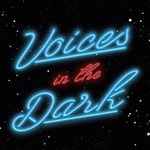
Voices in the Dark
Jon & Dre
Frequency: 1 episode/10d. Total Eps: 198

Recent rankings
Latest chart positions across Apple Podcasts and Spotify rankings.
Apple Podcasts
🇬🇧 Great Britain - philosophy
22/02/2025#82🇨🇦 Canada - philosophy
20/09/2024#92
Spotify
No recent rankings available
Shared links between episodes and podcasts
Links found in episode descriptions and other podcasts that share them.
See all- https://www.aubreymarcus.com/
690 shares
- https://drgabormate.com/
241 shares
- https://www.carsieblanton.com/
156 shares
RSS feed quality and score
Technical evaluation of the podcast's RSS feed quality and structure.
See allScore global : 59%
Publication history
Monthly episode publishing history over the past years.
The 7 Primes of Life
samedi 16 octobre 2021 • Duration 02:00:41
We live in a culture that prizes youth and tells us that, once our wild 20s are over, we're basically on the slow train to decay and death. But modern science tells us otherwise, as we set out to explore in this episode.
Given the cultural narrative of decline and fall, do we even have a sense of what the stages of life are beyond child–teenager–worker–pensioner–dead?
New research suggests that there are seven distinct 'primes of life', each with their own strengths, which call into question the narrative of inescapable decay. We look at what we gain as well as what we lose as our years increase – but not without questioning how the scientists came to these conclusions!
The studies prompt us to ask what we should prioritise at different stages of our life – when's the time to go all-out, to study something deeply, or to be hitting the gym on the regular?
The story of our physical and psychological development is complex and sometimes paradoxical. But beyond the science of it all, how can (and how should) we conceptualise all this so we can say we've led a Good Life?
We dig into:
- the different strengths we gain as we grow older
- the power of myth to make sense of and value our different primes
- what we actually lose and gain
- how Jungian Psychology can reframe our dismissive, mocking attitude to having a 'midlife crisis'
Jon riffs on what Carl Jung called the 'Individuation Process', the ancient concepts of the Daimon and the Genius, and we ask how these theories can help us to grow and become who we truly are.
LINK:
The scientist whose creativity was unleashed after having a stroke is Dr Jill Bolte Taylor. Check out her TED talk here.
Be Silly. Be Kind. Be Weird.(Economic) Apocalypse Now – Are We Weeks Away From Global Financial Meltdown?
vendredi 18 juin 2021 • Duration 01:51:26
Jon’s been getting disturbing dispatches from Andrea.
Is the economy about to crash like never before? Was 2008’s Big Short just a dress rehearsal for an incoming apocalypse that will shred the stock market and rewrite the future of society?
More importantly, should we all be investing in GameStop?
Well, perhaps.
Andrea’s been going incredibly deep into this very confusing world and he’s back to fill the rest of us in. Jon’s not convinced the end is nigh, but there’s definitely something disturbing going on in the financial heart of our ‘civilisation’.
Whatever happens next, we need to arm ourselves with better information and think about the kind of society we’d want to build in the prospective ruins of the current world order.
Be Silly. Be Kind. Be Weird.Corona Chronicles, Black Lives Matter and Poetry
vendredi 5 juin 2020 • Duration 01:34:25
It feels like we're living through a tipping point in world history. The year 2020 began with the Pope slapping a woman and the Australian wildfires (remember them?). That seemed dramatic at the time, but since then we've found ourselves in the midst of a pandemic, followed by mass protests that began in the US and are now spreading around the world.
This episode we try to look behind the matrix: is anything really going to change as a result of the protests, or even the pandemic? Are politicians able or willing to change? And what should we be doing about it?
As Trump sends in the army, Andrea thinks we're looking at a resurgence of Fascism. Is he right? Are we once again ignoring the warning signs as our grandparents did 100 years ago?
We also respond to criticism we received for our last discussion of COVID-19. Are we just being armchair virologists, acting as if we know better just because we have a podcast? Well, we don't think so...
Before the world goes down in a fireball of intolerance and disease, Jon wants to read you some poetry which has been making a positive impact on his life. David Whyte is an incredible poet and thinker – we hope his words will give you pause for thought amidst the chaos.
Plus we contemplate the future of the podcast and what directions we might decide to take going forward.
Get In Touch!- And you can find us on Instagram and Twitter
- Or email us: [email protected]
Metaprogramming: The Science of Becoming Who You Are – Erick Godsey Interview
mercredi 8 novembre 2017 • Duration 01:45:44
This is one of the best interviews we've ever done. We sat down with Erick Godsey to talk metaprogramming: the science and art of changing your fundamental habits to become the best version of yourself.
Metaprogramming means becoming aware of the stories you've been telling yourself about yourself, mostly unconsciously, and often with negative consequences... And then going a step further to consciously create a new, better, and more authentic one.
Erick has spent years dissecting how we can make genuine, lasting change to our lives, and how to avoid the pitfalls which claim 99% of everyone's shiny new resolutions. And for Erick, this has been a deeply personal journey.
From living in a state of fear, working in a fast food chain wondering if his life would ever become what he knew it could be, Erick dedicated himself to reading psychology, psychoanalysis and philosophy, but all with the aim of making practical, real-life changes.
So how can we map our consciousness – to understand the basic building blocks that are the foundations on which our ego, identity, and everything else we consider to be 'me' is built? We head into some dark places to find the gold that hides inside – turning shit into sugar, or, as Carl Jung put it, 'in the filth, it will be found'.
Erick's podcast is a laboratory in which he draws out the guests' fundamental habits and programming. But in this interview we use a powerful psychological exercise to turn the tables and delve into Erick's own unconscious.
You can play along too and discover how your own parents or parental figures have each programmed you one way or another – inflecting you with their own coping mechanisms, hang-ups, and also indirectly nurturing in you your own coping mechanisms whenever you feel your fundamental needs are unmet.We can go through our whole lives unconsciously acting out these patterns, but the Card 3 Exercise brings them directly, bracingly into focus and allows us to begin the acknowledging, healing and then metaprogramming process to move forwards and to grow as more conscious, self-aware human beings.
Erick then turns the tables right back on us and starts digging into the stories we both tell ourselves! We get into psychedelic emergencies, the traps of Autism and depression, and how we've each learnt to tell ourselves better stories.
Take The Test:- DOWNLOAD the Card 3 Exercise and discover the stories you're telling yourself without even realising it: Card 3 Exercise
- Psychedelics and how they can help make, break and remake the habits that define us
- How to help the people who don't want to be helped
- The emotional healing powers of MDMA
- Where intuition comes from
- The curious difference between feelings and thoughts
- Creating and understanding your own emotional Pantheon
- Why we spend so much time generating fears for ourselves
- The Metaprogramming Podcast – website, on iTunes, and on Facebook
- Make friends with Erick on Facebook
- Robert Anton Wilson's epic book, Prometheus Rising
- Tim Ferriss's legendary The 4-Hour Work Week
- Our original, exclusive interview with the Enlightened Entrepreneur, Peter Sage
- Jon's article for High Existence on self-harm
- Erick's pick for self-reflection and understanding, The Artist's Way, which includes the Morning Pages exercise
The Modern Stoic #5: Seeing Reality, Rejecting the Rulebook
lundi 6 novembre 2017 • Duration 58:31
Countless thousands of people have turned to Stoicism as a tool for self-development, but how do we even start improving ourselves without shunning aspects we don't like: you can't cut off your arm and not injure yourself in the process.
And how can we improve ourselves when the wisest philosophers we've had can't even agree whether a 'self' exists at all? Dre breaks down the biology and psychology of this, while Jon highlights the powerful but often-ignored parallels between Stoicism and Buddhism.
What is modern friendship, in the hyper-connected yet strangely cold world of social media? Jon explains what 'contextual friendships' are and why we shouldn't value (or dismiss) them too quickly.
In this letter, Seneca asks what the point of learning is if we don't share that knowledge with others, but this prompts us to ask what are the limits of sharing? Where's the line between sharing life and experience and simply dumping your baggage on everyone else around you?
We dig into where the healthy balance lies; why American culture over-shares and yet reaps unexpected benefits from doing so; and how watching The Lion King taught Dre a fundamental lesson in personal confidence.
Humans are pattern-recognition machines, but society teaches us to switch off those skills and read the cultural rulebook instead. So how often are you wasting time grumbling about how things ought to be, rather than working on the evidence before your own eyes?
Jon shares personal stories of how some of the smartest professors in Oxford are utterly dysfunctional as humans; Dre drops the bombshell that RuPaul has been quoting Seneca for years; and we both unpack the reality behind our own friendship and why it's so strong even though we spend most of the time vehemently disagreeing with each other.
Also Including:
- Does self-improvement mean not accepting yourself for who you are?
- Are we ever friends with people who aren't like us?
- Can we enjoy things without other people to share them with?
- Radical Honesty: the life philosophy that can get you laid and get you ostracised in the same hour
- The cardinal law: Show, don't tell; Experience, don't read
- Learning from someone's character rather than their words
- Dre's theory on why emotions are overrated and misleading
- Like us on Facebook to ask for the Audible download code for Seneca's letters
- The full text for free on WikiSource
- Ryan Holiday's superb and accessible book on Stoicism: The Obstacle is the Way
- Tim Ferriss's brilliant TED talk on 'fear setting' and Stoicism
- Esther Perel's hugely popular TED talks on relationships and infidelity
The Modern Stoic #4: On Not Being A Dick
lundi 30 octobre 2017 • Duration 47:45
Self-development – becoming better humans – is what Voices in the Dark is all about. But how do we set about it without showing off, making others feel insecure, or adopting the obnoxious air of the 'oh look how simple a life I lead' bohemian?
Being egotistical about how much you've worked on your ego is the next, subtle trap along the path to self-improvement. So how can we avoid it?
Seneca has some answers, but we don't agree with all of them.
We talk about how to present yourself so that others will follow your example and warm to your cause; how to avoid blinding yourself to the good parts of otherwise 'bad' people; and why Donald Trump wants to paint everything gold.
Human nature has its own traps, too: we have to watch out for our own (self)destructive animal and tribal behaviours before we end up copying others rather than becoming ourselves.
As Seneca warns, 'It is the sign of an unstable mind not to be able to endure riches'. There's a panoply of under-acknowledged mental illnesses in our society surrounding wealth and pleasure. We throw the spotlight on these and why it's just as dysfunctional to deny yourself the opportunity to enjoy privilege as it is to be, well, Donald Trump.
This is all about action, though. Philosophy has to be useful to be worthwhile – it's about living the Good Life, not analysing life into a dusty grave.
Needless to say, there's also time to contemplate the importance to life of pizza and anal.
Including:- Is Tim Ferriss really following this advice?
- Wanting the finer things in life for the right reasons
- On not getting a 20-foot cock extension
- Why Dre only trusts militant vegans
- White Knight syndrome
- Why money can't buy you taste
- Why hope and fear always go hand in hand
- Like us on Facebook to ask for the Audible download code
- The full text for free on WikiSource
- Ryan Holiday's superb and accessible book on Stoicism: [easyazon_link identifier="1591846358" locale="US" tag="vointhda06-20"]The Obstacle is the Way[/easyazon_link]
- Tim Ferriss's brilliant TED talk on 'fear setting' and Stoicism
The Modern Stoic #3: Dying (And Living) Well
lundi 23 octobre 2017 • Duration 42:44
You forget to look before crossing the street; your foot slips as you walk down the stairs... and it's all over. Are you ready? Can you be at peace with that?
The Stoics took care to remind themselves of death: Memento mori. In the cutthroat world of the Romans, this could be all too close, but we all so easily forget that death can turn up any moment.
And yet most people are caught between the fear of death and the unwillingness to live. We're too scared of losing things – possessions, jobs, relationships – to actually enjoy having them at all.
As Seneca hammers home, the secret to a good life is to remember death: that it will all be taken from us in an instant, so we'd best make the most of now.
What's the point of living a life worrying about something we cannot change? Seneca doesn't think it's worth the time at all... But Dre's still planning to live forever, and with advances in modern technology this could soon become a reality. What would that mean for our lives, friendships, values, and goals, though?
On the other hand, if this was the last day of your life, wouldn't you just eat ice cream rather than fulfil all your ambitions, only for them to vanish?
This episode, we get into some serious disagreements about whether there's any point in being afraid of death; we hear Jon's plans to wank on mountains and read an entire library; and Dre adamantly refuses to die.
Including:- Why most old people are dicks
- Dre's plans for immortality and why you're too weak for it
- Would there be any morality in a world without death?
- Learning to be OK with being terrified
- How long would you choose to live if you could remain physically 22?
- Like us on Facebook to ask for the Audible download code
- The full text for free on WikiSource
- Tim Ferriss's brilliant TED talk on 'fear setting' and Stoicism
The Modern Stoic #2: True And False Friendship
lundi 16 octobre 2017 • Duration 44:36
Who would you help to bury a body? Just how good a friend would they need to be?
Would they do it for you? How can you be sure?
Friendship is deeply human, but it's something we frequently take for granted and make foolish assumptions about. It's time to give it another, deeper look.
This episode, we debate what Stoicism has to tell us about true friendship, what trust really means, and how to build the personal bonds we want in our lives.
What do we even mean by 'friend', anyway?
Seneca thought that a friend is someone you trust as much as you trust yourself – but what does that really mean? Do you trust yourself? And why should we trust someone else with every part of our inner lives?
The English language doesn't make enough distinction between close friends and casual acquaintances. And without clearer distinctions, we blur the boundaries and make fateful, harmful choices.
Sociological research tells us that some of the closest trust bonds are forged outside conventional society: by criminals, vagabonds and misfits. Inside society, we're often too busy being polite to notice that we're being taken for a ride (often by our own stupidity).
Trusting someone with your secrets isn't the same as trusting them to turn up on time; trusting someone to have your back isn't the same as trusting them to look after your kids. But do you take enough time to consciously consider the difference?
We explain how to craft a healthy, powerful friendship or relationship, and how so many people poison them from within. We break down the John Watson Dynamic and how it can simultaneously strengthen your own character and other people's.
Jon shares how he's learnt how to make better decisions about when to keep his cards close to his chest, and the time his friend's dad decided to admit he had an affair (while en route to a strip club). Dre refuses to work out with Aubrey Marcus and reveals who he'd do jail time for (it's not you).
Including:- Different kinds of trust and how to pick the right one for every situation
- Remember: In the right circumstances anyone can betray you
- Why Americans are friendly – but only superficially
- Russian friendship and why it's better
- A dirty secret: we all have best friends and parents all have a favourite kid
- Life Hack: Treat people how you want them to behave
- Don't put your soul on the line for just anybody
- Like us on Facebook to ask for the Audible download code
- The full text for free on WikiSource
- Tim Ferriss's brilliant TED talk on 'fear setting' and Stoicism
- Ryan Holiday's books on Stoicism: The Obstacle is the Way and The Daily Stoic
- Carsie Blanton's beautiful song, To Be Known
- And Carsie's Kickstarter project, The F'n Truth
- Diego Gambetta, Codes of the Underworld
Be Silly. Be Kind. Be Weird.
The Modern Stoic #1: How To Know When You've Struck Gold – And Then How To Mine It
lundi 9 octobre 2017 • Duration 46:43
We all like to keep our options open – to play the field, diversify our portfolios, enjoy the freedom of an all-you-can-eat buffet. But there's a catch – a hidden, bitter price-tag we overlook at our peril.
Freedom without focus is a merciless dream killer. The superficial succeed only at getting fat, complacent and insecure.
Breadth and quality do not go hand in hand. The most successful and creative people don't prize knowing a little about a lot – they know when to pick an interest, business or project and drill down deep to mine the gold within.
In this first episode of our new series on Stoicism, we explore the Stoic master Seneca's timeless advice on how to do the same in your own life.
Whether it's showing off at the Roman Senate or chasing Likes on Instagram, Seneca's wisdom cuts to the core of the issue.
The answers are deceptively simple – but are you up to the challenge?
This Episode Includes:
- Learning to focus your efforts on those areas and skills which are truly worth your attention
- How the brain processes information and which conditions promote fresh thinking
- Reading a book a day might sound impressive, but it's getting you nowhere
- Why the creative process often happens when we're not trying
- Knowing when to stop looking and recognise that something is worthy of your full attention
- How to read in spirals and why you should start now
- Why humans have been telling the same stories for millennia
Dre also unleashes a trick for how you can learn anything from anything and Jon reflects on how he found true happiness in cheesecake.
Find Out More:- Like us on Facebook to ask for the Audible download code
- The full text for free on WikiSource
- Tim Ferriss's brilliant TED talk on 'fear setting' and Stoicism
- Ryan Holiday's books on Stoicism: The Obstacle is the Way and The Daily Stoic
- For cheesecake and other culinary delights, check out The Suited Chef
DMT Before & After: Spirit Molecule Or Psychedelic Blackhole?
lundi 2 octobre 2017 • Duration 01:10:21
Ever been on a white-knuckle cosmic sleigh ride over the mountain peaks of enlightenment? Would you like to?
They call it the Spirit Molecule. Just a few quick breaths of DMT, and reality dissolves around you, thrusting you into another dimension and bringing you back again in time for tea.
For some, it's a super-powered psychologist who cuts right to the core of your deepest fears and traumas. But that's not what happened when Dre took it for the first time, live on this episode.
We hit record right before and immediately after Dre sucked on a homemade crack pipe and launched himself into the next dimension.
Julian Deane – a leading UK comedian – joined us to trip-sit and to share his own terrifying experiences with DMT. It helped him to overcome addiction and confronted him with his own ego games... And yet, he wonders, couldn't we discover all of this through yoga and meditation instead? Without all the terror?
Despite his long personal history with psychedelics, this is Dre's first time trying what many call the most powerful psychedelic in the world.
So how does DMT measure up? Controversially, Dre doesn't think you can really learn anything from it... and yet he wants to go back for more. Why?
Find Out More:
- Julian's website
- The Spirit Molecule book

